Shark attack suspected on killer whale John Coe
- Published
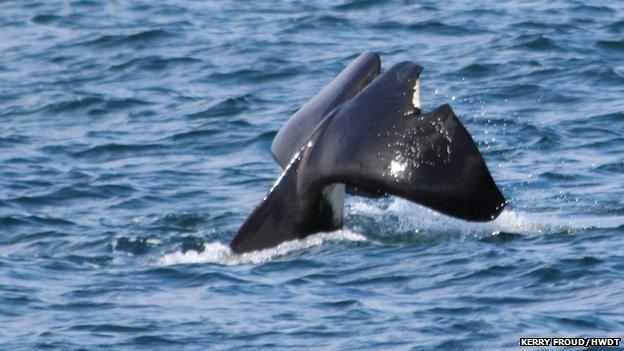
A large piece of the killer whale's tail fluke is missing
A shark has been suspected of biting a chunk out of the tail fluke of a killer whale well-known to whale and dolphin watchers in Scotland.
Nicknamed John Coe, the male orca can be indentified by a notch on its dorsal fin.
The injury to its tail was spotted during a survey by the Hebridean Whale and Dolphin Trust (HWDT).
The trust said consultations with experts suggested that it was "almost certainly" caused by a shark.
John Coe is one of a small community of orcas regularly seen off Scotland's west coast.
Members of the group have also been spotted at times off Peterhead and Girdleness in Aberdeenshire, Ireland's west coast and off Pembrokeshire in Wales.
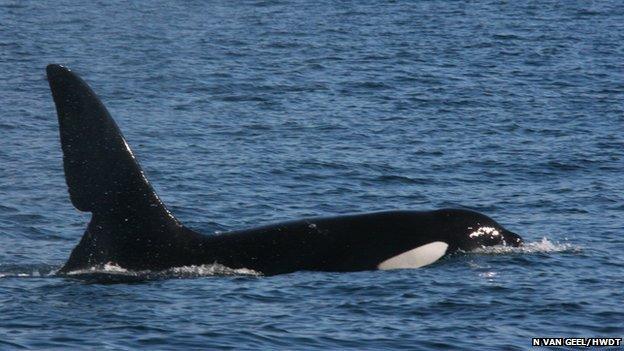
John Coe can be identified by a notch on its dorsal fin
The group, which is believed to be the UK's only resident population of killer whales, is thought to contain just nine older animals.
There are fears that it will eventually die out after becoming isolated from other killer whale populations.
In a statement, the trust said: "Notable highlights during 2014 included two separate encounters with what is believed to be the UK's only known resident population of killer whales.
"This small, isolated population of orca has never produced offspring since studies began, raising fears that it faces imminent extinction."
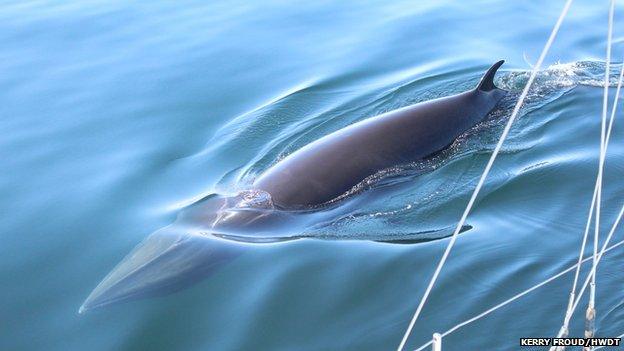
A young minke whale was spotted during the recent survey
It added: "Evidence of drama emerged when one of the group's males - known as John Coe - was observed with a large area of his tail fluke missing.
"Consultations with experts suggest that this was almost certainly the result of a shark attack."
The trust said it could not "realistically speculate" on the kind of shark involved.
HWDT carried out its latest survey of whales, which included a young minke whale, dolphins, porpoises and plankton-feeding basking sharks, between May and October last year.
The trust has now released information on the data it gathered, including a 25% increase in sightings of harbour porpoises and a 33% decline in observations of basking sharks.
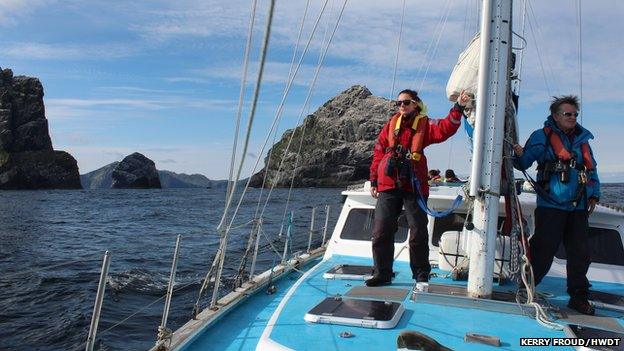
Much of the work was done from the HWDT's boat Silurian
- Published5 December 2014
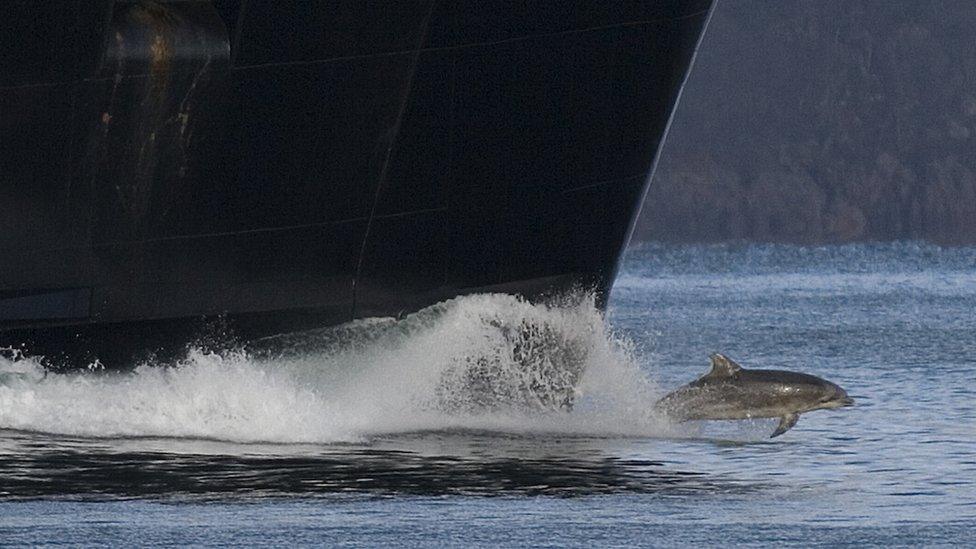
- Published23 August 2013
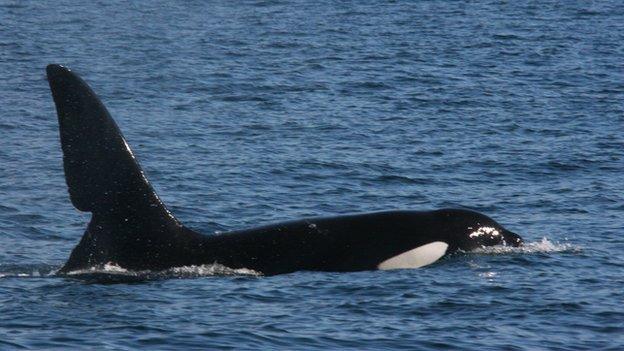
- Published27 January 2011